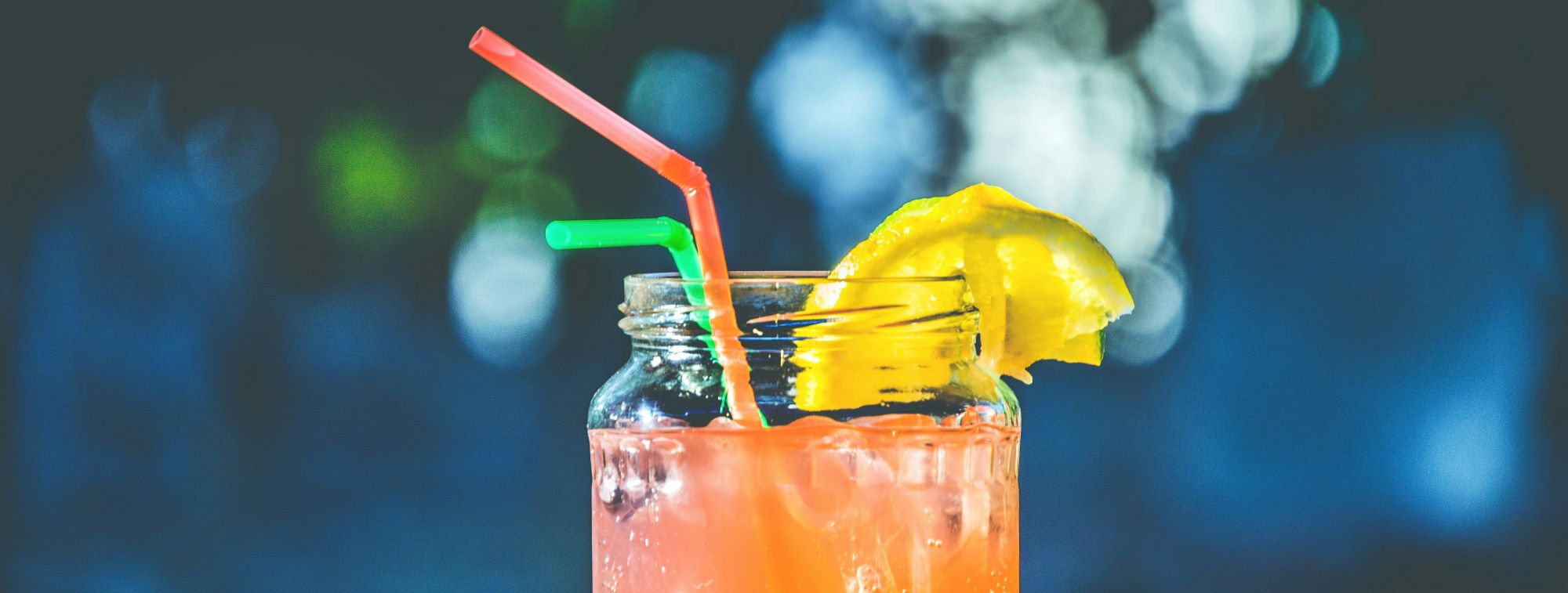
18 May The Effects of Summer Beverages on Dental Health
With summer just around the corner, many of you are probably starting to make plans and prepare for the warmer weather. If this describes you, then you may be looking forward to a time of swimming, fireworks, and delicious beverages. But oftentimes, the effects of these drinks that you plan to enjoy are relegated to merely being harmless and fun. However, summer beverages can have a significant effect on your oral health if precautions are not taken. But what are these summer drinks?
Acidic Beverages
Many summer drinks like lemonade, iced tea, and fruit juices are incredibly tasty, but are also acidic. That makes it important to be cautious of the effect of these drinks on your oral health, and many of these effects can be detrimental. King Street Dental Group wrote that, “Anything with a pH less than 7 is considered to be acidic and over time, they can wear down the strong outer layer that protects your teeth (enamel) causing permanent tooth erosion.”
That’s right, these innocent sounding drinks can be very harmful if you let them be, specifically to your enamel. These drinks can erode dental enamel which is the hard and protective outer layer of your teeth. The way that the process works is that the acids in these drinks, when consumed, temporarily soften tooth enamel, making it more susceptible to wear and damage. Over long periods of time, this acid exposure can lead to significant enamel erosion. This results in increased tooth sensitivity, discoloration, and a greater risk of cavities. This is all worsened by the fact that enamel erosion is irreversible, which shows us the importance of moderating intake of acidic beverages to preserve tooth health.
Some responses
To protect your teeth from the damaging effects of acidic beverages, there are some important habits you should adopt. First, try to avoid adding lemon to every glass of water you drink and don’t swish or hold soft drinks in your mouth before swallowing. Additionally, you should wait 20 minutes after drinking these liquids before brushing your teeth. This can help prevent further damage to the enamel that has been softened by the acid.
Although this may be difficult in the summer, the best time to consume these beverages is during mealtimes. Rather than sipping them throughout the day, this will limit acidic exposure to during meals. After drinking acidic beverages, rinsing your mouth with water and using a straw can help by minimizing direct contact with your teeth. Finally, gum can actually help! Although this may come as a surprise, chewing sugar-free gum can boost saliva production which aids in the removal of some of the acid from your teeth. And of course, maintaining daily tooth brushing and good oral hygiene is crucial for protecting your dental health.
Sports Drinks
Sports drinks, which are often seen as a healthier option, can actually be very detrimental to oral health due to their high sugar content and their acidity. Although we have already discussed acidity, this potent mix can actually cause more damage to teeth than many sodas. This weakens tooth enamel as well, but also increases vulnerability to bacteria and decay. The degradation of enamel can lead to multiple issues, which includes damage to the underlying tooth tissue, extreme sensitivity to temperature changes and touch, and a greater likelihood of tooth staining. Beyond this, the sugar in these drinks promotes bacterial growth on the teeth. This further expands the risk of dental cavities. So, contrary to popular belief, sports drinks may not be as beneficial for oral health as many consumers think.
Some ways of minimizing the harmful effects of sports drinks on teeth include using a straw to reduce contact between the beverage and your teeth and opting for dental-friendly sports drinks that have low sugar and acid levels. Alternating sips of sports drinks with water can help rinse your mouth and reduce acid buildup. Although this may seem like common sense, it is important to note that you should try to avoid rinsing mouth guards with sports drinks, as doing this can expose them to sugars and acids that might contribute to dental issues. These simple steps can help protect your dental health while still allowing you to enjoy sports drinks.
Alcohol
For many, alcoholic beverages are a staple of summertime. However, it is important to be aware that alcohol can cause a host of many oral problems. There is a direct connection between alcohol consumption and dry mouth, or xerostomia. Alcohol leads to dehydration which causes a reduction in saliva production. This leaves the mouth feeling dry. Additionally, alcohol can also irritate and inflame the tissues within the mouth and throat, which makes the situation even worse. This decrease in saliva can lead to symptoms such as a dry or sticky mouth sensation, trouble swallowing, and a sore throat.
The excessive drinking of alcohol can even harm the immune system which reduces its ability to combat infections such as periodontitis, which is more commonly known as gum disease. Periodontitis is a prevalent long-lasting consequence of heavy drinking and is marked by symptoms such as bleeding gums, plaque buildup, gum recession, infections, and the formation of pockets where the gums detach from the teeth. Gum disease is no joke, and it is often also associated with an increased risk of developing serious health issues like cancer, diabetes, stroke, and heart disease.
Obviously, the best way to combat these health concerns is to not drink at all. But if you do choose to, moderate alcohol consumption is one drink per day for women and no more than two drinks a day for men. You should also minimize alcohol’s dehydration effect by drinking a glass of water in between drinks to replenish your saliva. And of course, you should also brush, floss, and use mouthwash after drinking alcohol.

About Our Team
Our team of dental experts has well over 30 years of combined experience in the field of dentistry. To learn more about them, please visit the team pages for Hephzibah, Washington Road, Summerville, and Medical District locations.

Sorry, the comment form is closed at this time.